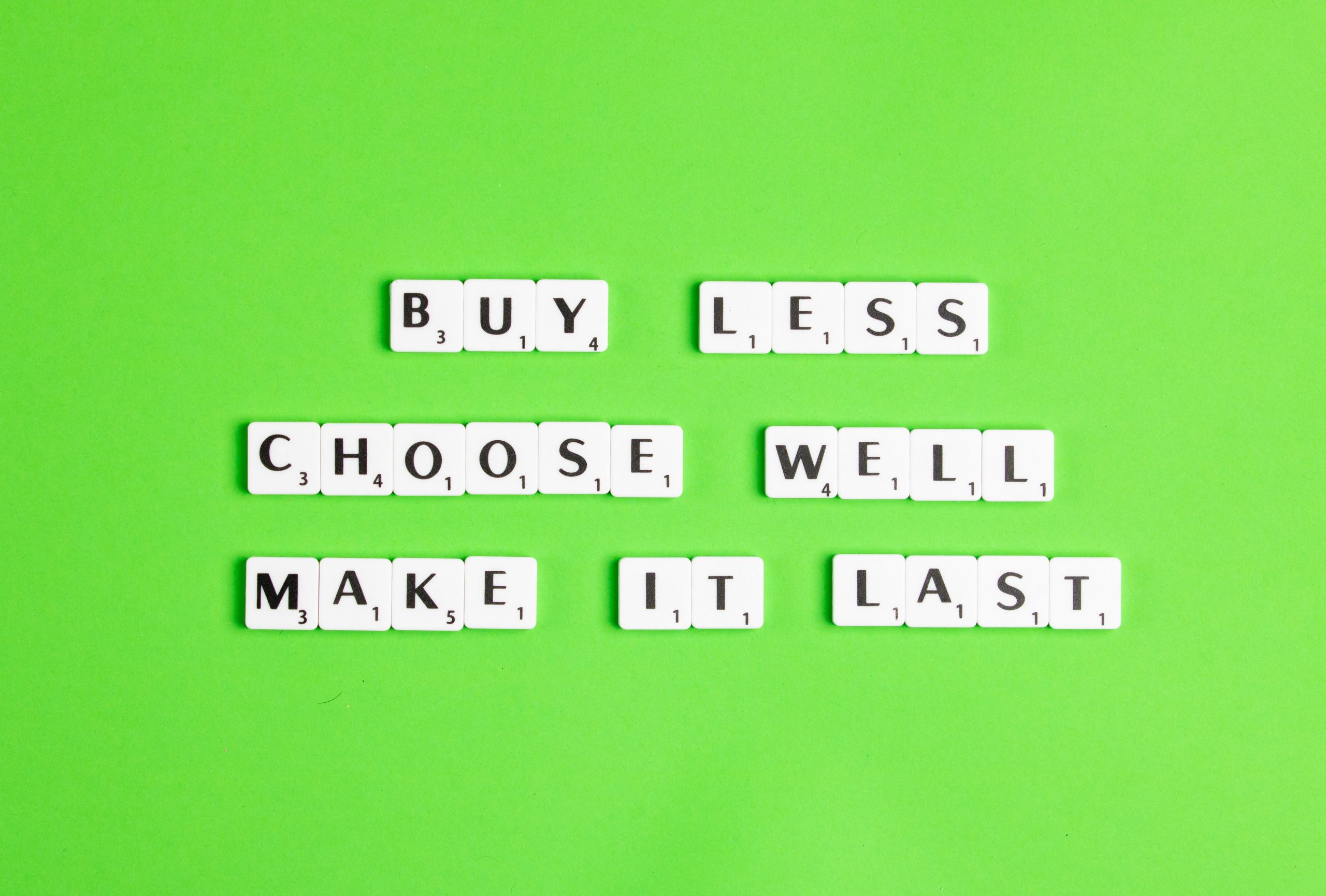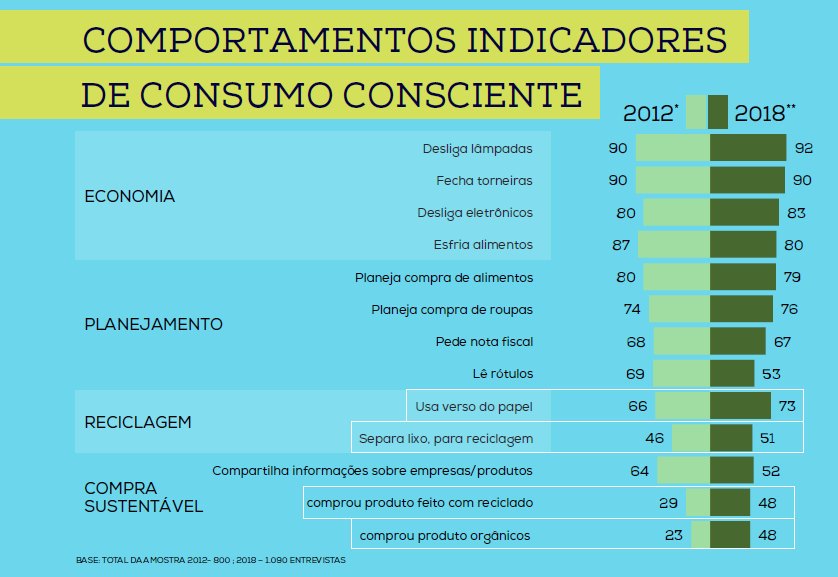
In 2020, mainly because of the pandemic, the issue of consumption became even more latent. The predicted consumption trends have suffered shocks, however, in no way does this devalue the knowledge they express and indicate which path to follow. This occurs because consumer trends do not emerge from one day to the next, but rather from the demands of the present and what the market offers us.
In search Panorama of Conscious Consumption (2018) carried out by the Akatu Institute, the tendency of Brazilian consumers to seek more sustainable habits is evident – showing an increase of 6% in the period from 2012 to 2018 in consumers classified as “beginners”. That is, around 16 million Brazilians are no longer indifferent to the issue. However, this is not just a trend in the final part of the value chain, but rather of all interested parties that make up the links in this chain, as can be seen from the Letter from Larry Fink – president of Black Rock, which is the largest asset management company in the world –, which places “sustainable as the new competitive normal”.
In this way, it can be seen, as Hélio Mattar – CEO of the Akatu Institute – comments on the podcast Entrepreneurial Chat, that consumption from the perspective of action is not an individual practice, but a social one. The consumer is unable to practice more conscious consumption, even with a conscience, if the other constituent links of the chain do not offer means and information to do so.

Art: Alê Kalko
Due to this awareness and the need to break beliefs and paradigms to create new habits, the search for businesses that understand the meaning of their role has grown, generating value not only for their business, but for society. These are companies that in recent years and during the pandemic have stood out and shown that integrating sustainability into their strategic planning determines their choices in such a way that it becomes an organization's culture.
This “strengthening of the principles of sustainability” provides opportunities for human beings to feel motivated to engage in causes and, through these, build new habits, such as, for example, the startup’s mission. So+ma, which encourages users to understand the impacts of their consumption habits by generating opportunities through the valorization of waste generated by them1.
Another example is the launch of Colorado Amazon from Cervejaria Colorado, which encourages awareness regarding the deforestation of native forests, as the price of the drink varies according to deforestation rates in the region. However, the product not only brings this point of discussion into its mission, but also the appreciation of products from the Amazon biome and artisanal production by local communities.
This change in culture often comes up against barriers and difficulties on the part of the consumer. A search of the Akatu Institute carried out in 2018, shows that the main consumer perceptions as barriers are the price It is the availability of information on environmental and social impacts. Perceptions of barriers are closely linked to the level of maturity and the extent to which we adopt the concept of sustainability (economic, social and environmental) in our routine practices.
Therefore, considering aspects beyond the monetary value of the product in relation to the product consumed, a much more complex critical awareness develops, as it starts to consider not only the final value sold, but also: what is the origin of the raw materials ? What are the working conditions of employees? What is the composition of the product? Is it recyclable?
It is these questions that allow us to move from consumerists to consumerists. Consumerism is a new concept that has emerged to define responsible consumption that takes into account the origin of products and environmental and social impacts. As Célia Linsingen – Marketing and Innovation consultant – says, it is about creating a cause-based consumption.
Consequently, even if consumers are sometimes unwilling to pay for more sustainable products, the tendency to adopt better practices and greater transparency in communicating information is a path of no return, according to Fernanda Iwasaka – analyst at the Akatu Institute. As it is an irreversible process, it is clear that different retail sectors such as food, cosmetics and clothing follow the trend of adapting to market demands.
Finally, I ask: if the maxim “I am what I consume” is true, what type of image do you and/or your organization want to present? What impact does your organization or you want to promote in the world? What type of company do you want to build?
Share